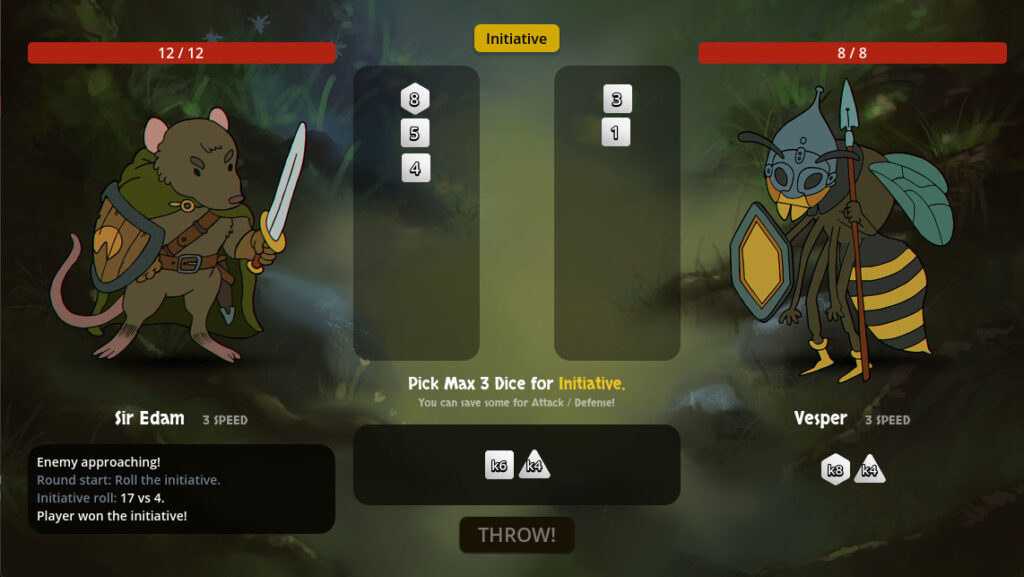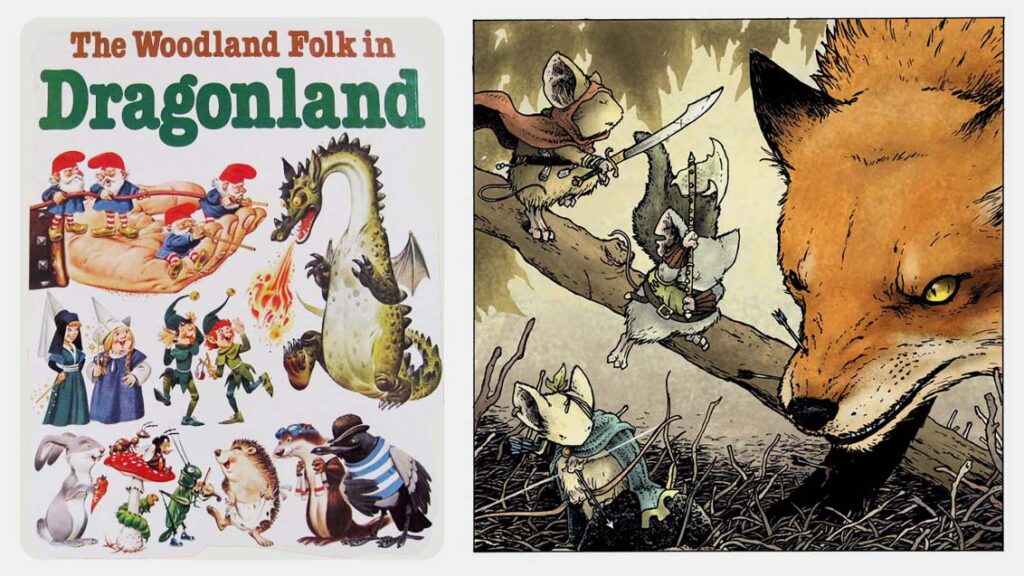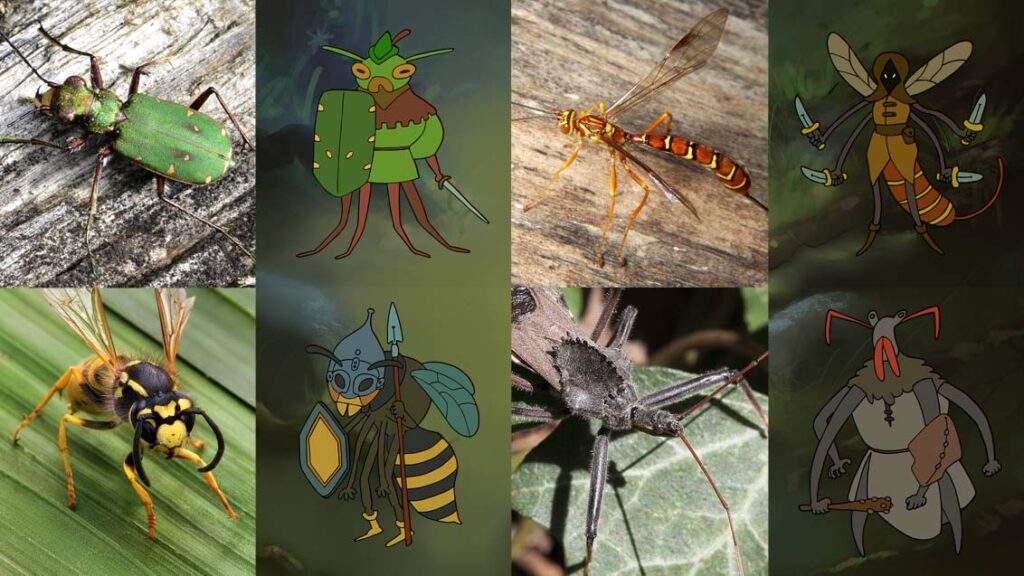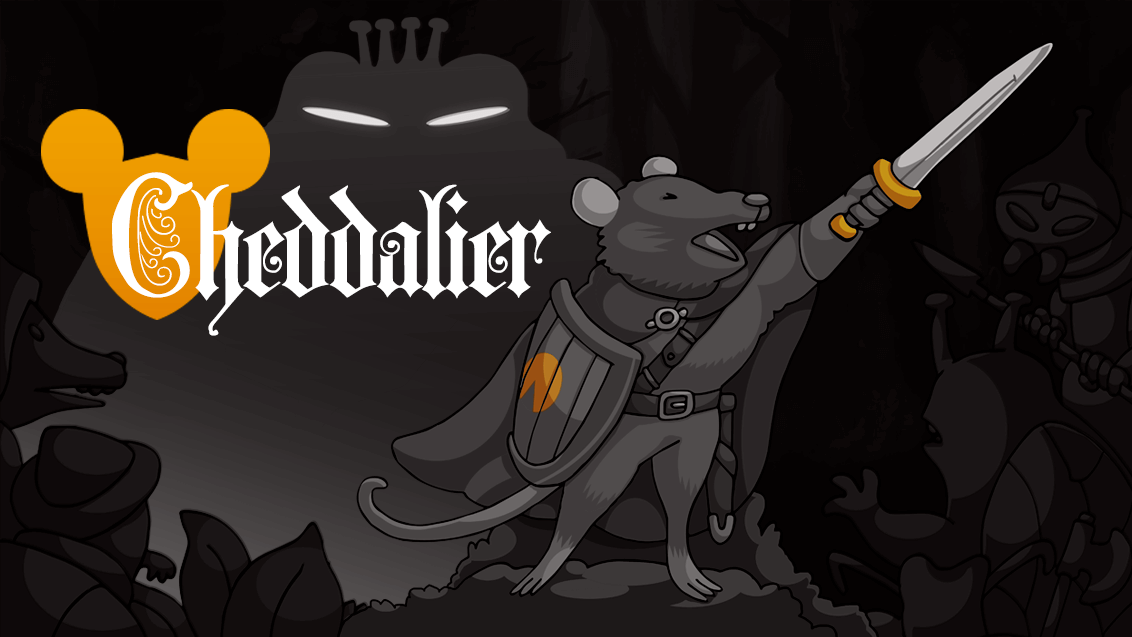Cheddalier
My wife and I took part in the 56th edition of the Ludum Dare game jam. Creating a video game in just three days seemed like quite a challenge, but there's no obstacle a married couple can't overcome, right?
First and foremost, be sure to check out the game online by playing it here:
The game is a roguelite, so you can die easily if you’re not sure what you’re doing. The combat mechanics are fairly simple, but I recommend reading the tutorial to avoid getting killed too quickly. Good luck on your quest!

What is Ludum Dare?
Ludum Dare is an biannual game jam event where you create a game from scratch in a weekend based on a theme. Themes are suggested and chosen by the community.
The theme is revealed at the start of the event. Then you need to create and publish your game in 72 hours. You can work alone or in a team.
It’s a well-established and respected event that began in 2002 and has continued ever since.
Theme and inspirations
The theme of this event (October 2024) was “Tiny Creatures”, so the plan was to go for a fantasy/medieval vibe, merging it with small animals as characters—but without making it too sweet or too dark.
Mechanically, I aimed to create a small roguelike with simple, easy-to-follow core mechanics, leaving room for potential improvements.
Artistically, the goal was to capture the feel of old cartoons like Gummi Bears, incorporating a slight chromatic aberration effect and painted backgrounds for that nostalgic look.
Other inspirations:
Tony Wolf’s The Woodland Folk Series & David Petersen’s Mouse Guard

And nature itself

How to make a video game in 3 days?
The key here is speed, so take these tips with a grain of salt:
- Use a game engine and learn its basics beforehand.
- Reduce the scope to the absolute minimum. Cut out all the “nice-to-haves.”
- Don’t underestimate asset creation. How many illustrations can you realistically make in 8 hours?
- Have a plan. Don’t jump between tasks too much.
- Create a boilerplate for your game with basic elements like an empty game over screen, main menu, and win scene connected before you start.
- Focus on the core game loop. Once it works, you can add features or balance things.
- Add cheat codes for faster testing (e.g., press X to win a combat).
- Have a good music playlist that helps you stay focused.
- Avoid memes and social media
- Use AI for solving general helper functions like sorting, trigonometry, or array transformations.
- Don’t rely on AI for unique mechanics or ideas—it will take more time to explain than it’s worth.
Ideas for improvement
The dice mechanic feels a bit basic as it stands, so I was considering adding a leveling or semi-boosting system. Maybe introduce tiers like wood, stone, bronze, silver, and gold, or have dice specifically dedicated to attack or defense.
It also seems necessary to nerf the current optimal strategy, where players win initiative but focus on boosting dice rather than attacking. This makes combat feel too passive.
Exploration could use more attention as well. Adding multiple paths, campfires, and random scripted events would make it more engaging.
I also think a second mechanic alongside the dice is expected in a roguelike, to reduce the reliance on RNG. Special abilities or magic items could be a good way to achieve this.
Summary
Snooping through the comment section on the jam entry page reveals that people generally enjoy the game. Most of the complaints are about the lack of variety in the tactical aspects of the combat.
I’m happy with the final result and how complete the game feels, as well as how smoothly the development process went. For the next Ludum Dare in April, I plan to try making a more action-oriented entry. Hopefully, by then, my Godot skills will have improved enough to handle timers and object interactions more effectively.
Update:
We finished in 22nd place out of 1479 games. Not bad!
Tools used
Godot 4 – Coding and UI
Moqups – Planning and Brainstorming
Pencil and Paper / Photoshop / Illustrator – Illustrations
Garageband – Music
Procreate – Backgrounds
Photo Sources:
https://en.wikipedia.org/wiki/Megarhyssa
https://en.wikipedia.org/wiki/Wasp
https://en.wikipedia.org/wiki/Arilus
https://observation.org/species/1446/

